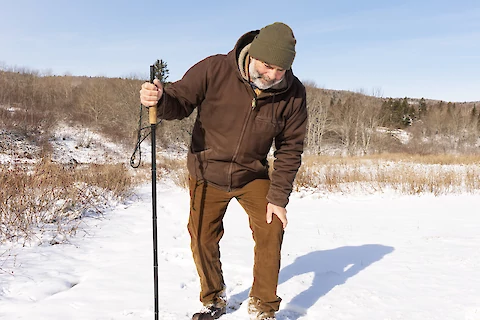
As the winter chill descends upon us, many of our senior residents with arthritis notice a distinct increase in joint pain and stiffness. Weather does have a known effect on arthritis symptoms, but it's important to interpret these symptoms accurately.
Learn how to distinguish between the typical impact of colder weather on arthritis and signs that your condition may actually be worsening. Gain an understanding of the nature of arthritis, how winter can exacerbate its symptoms, and the distinctive signs of worsening arthritis. Equip yourself with the information you need to manage your health better during these colder months and seek medical attention if necessary.
Understanding Arthritis
Arthritis is a common health condition among seniors, characterized by inflammation of the joints, resulting in pain and stiffness. There are several types of arthritis, but the most common type affecting seniors is osteoarthritis—a degenerative disease that affects the cartilage in the joints.
As we age, our cartilage begins to wear down, making it harder for joints to move smoothly. When affected by arthritis, everyday tasks can become more difficult and painful, affecting our quality of life.
How Cold Weather Affects Arthritis
For many with arthritis, there seems to be a connection between cold weather and increased symptoms. In colder weather, changes in barometric pressure can lead to increased joint pain and stiffness. For every 10-degree drop in temperature, arthritis pain can increase by a small but noticeable amount. However, we mustn't solely attribute escalated pain to the weather.
Symptoms of Worsening Arthritis
While the cold may exacerbate your arthritis symptoms, it's essential to understand the signs that may point to the fact that your arthritis could be getting worse. Increased joint pain or swelling that persists even after the weather warms up, visible changes in the appearance of your joints, a decrease in your range of motion, or joint pain that keeps you awake at night, could all be signs of worsening arthritis rather than seasonal discomfort. More so, if over-the-counter medications that normally help with your arthritis symptoms are no longer effective, it could be an indication of advancing disease.
These symptoms differ from those that might result purely from the effects of cold weather, which tend to decrease as the weather warms up.
When to Seek Medical Attention
Don't dismiss increased pain or discomfort as merely a result of the cold weather. Arthritis is a disease that can progressively worsen over time, and catching these changes early can help you manage the disease more effectively, preventing further damage to your joints.
If you experience persistent pain during cold weather or notice any signs of worsening arthritis discussed in the previous section, it is important to check in with your healthcare provider as soon as possible. Remember, pain is your body's way of signaling that something isn't right.
Stay Healthy With Senior Helpers
At Senior Helpers Richmond, MI, we're committed to supporting our seniors in Macomb, Port Huron, Utica, Richmond, and New Baltimore with their in-home care and companionship needs. Contact us today to find out how we can help you live a comfortable and fulfilled life, regardless of the weather.